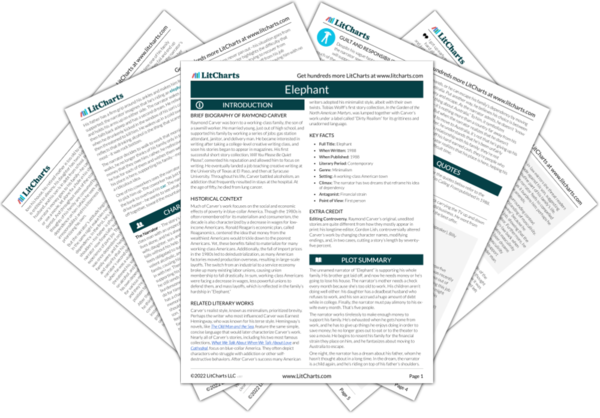Despite his vague fantasies of fleeing to Australia, the narrator seems to see it as inevitable that he will support his family for as long as they ask. But for much of the story, it’s not clear why he feels compelled to support them. Why does he seem unable to tell his son that he can’t go to Europe or to tell his brother that he needs to get a job? The narrator frames himself as being powerless in the face of his obligations (“I had to help her,” he says, or “What else could I do?”), but midway through the story it becomes clear that the narrator’s feeling of powerlessness is actually covering up his guilt.
In a dream, the narrator relives a real memory of drunkenly kicking through the window of his son’s car and threatening to kill him. From this, it’s shown that the narrator used to be a violent alcoholic, and the implication is that his family dissolved as a result—his wife divorced him and his children went to stay with her. It also seems possible that the narrator’s drunken violence contributed to his son’s mental health issues. This helps readers understand why the narrator feels so responsible for financially supporting his family: he hurt them profoundly in the past. He can’t fix what he’s done, but he seems to see the financial support as a form of atonement, a way to assuage his guilt and take belated responsibility for his actions.
Guilt and Responsibility ThemeTracker

Guilt and Responsibility Quotes in Elephant
Once, long ago, when I used to think like a man about these things, I threatened to kill that guy. But that’s neither here nor there. Besides, I was drinking in those days.
Drinking that whiskey was the thing that scared me. That was the worst thing that could have happened. That was rock bottom. Compared to that, everything else was a picnic.











